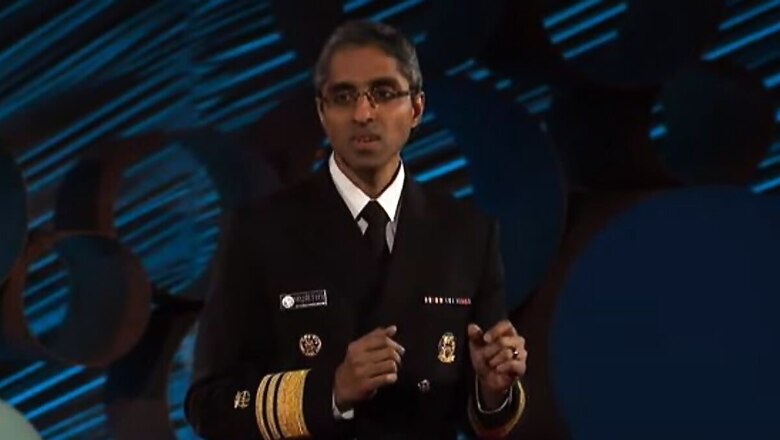
views
United States Surgeon General Vivek Murthy has the perfect recipe for happiness — not just for the self but also to inspire happiness in the lives of others.
During a Ted Talk in 2016, Murthy said: “Happiness affects us on a biological level. Happy people have lower levels of cortisol, a key stress hormone. They have more favourable heart rates and blood pressures. They have stronger immune systems and lower level of inflammatory markers such as C-reactive Protein which is linked to coronary heart disease. Happy people live longer. There’s something about happiness that seems to be protective.”
He added, “While happiness is an important factor in improving health, it’s not the only one. Good nutrition, exercise and sleep are essential tools to fight mental illness. Whether we are living with depression or diabetes, treatment is essential too. Yet among all these factors for improving mental health, happiness stands out as a largely untapped resource. It has the potential to transform health for individuals and communities.”
Murthy, explaining the phenomenon of unhappiness, said: “As an internal medicine doctor, I’ve had the privilege to care for many patients over the years with a wide range of illnesses; from cancer, infections, heart disease to diabetes. But perhaps the most common condition I have seen is unhappiness. Unhappiness stems from isolation, from lack of meaning and loss of self-worth.”
Linking happiness to health, the US Surgeon General said: “As I travel across the country, I see people who are anxious, worried and stressed. These includes children too. They find themselves increasingly surrounded by news stories and narratives that remind them of all the things they have to be worried about. Unhappiness is a risk factor for illness. You might ask yourself that does happiness lead to better health? Isn’t it the other way around? While circumstances might influence our short-term happiness, our long-term happiness is far driven by how we process life events than the events themselves.”
He added: “Research tells us that gratitude exercises, meditation, exercise, and social connectedness are just some of the tools we can use to increase happiness.”
Citing the example of a high school in San Francisco, Murthy said some years ago, the school was struggling with low attendance rates and high levels of violence. The school tried all types of programmes but to no avail. “The one day, they decided to take a leap of faith and created meditation sessions. Within a year, suspension rates dropped, teacher absenteeism dropped, students got better grades and were happier.”
Murthy said the good thing about “all these tools for increasing happiness is that they are simple and accessible”. “We have been accustomed to thinking that complex problems require complex solutions. Sometimes, simple solutions are the key. If you think about it, all of us have the ability to create happiness for ourselves. We also have power to create happiness in the lives of others. Sometimes just a simple gesture or kind word can touch someone else’s life,” he said.
Sharing his vision for the future, Murthy said: “Imagine is happiness was prioritised in schools as much as grades and test scores. Imagine if our policymakers understood emotional well-being to be the fuel that enables us to be productive, happy and strong. Let us remember that we can create happiness in our lives and those of others. If we do this, we’ll build a world that is full of joy, health and one which our children deserve.”




















Comments
0 comment